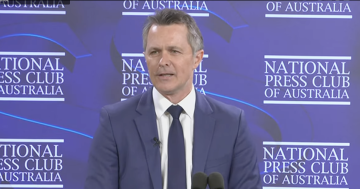
Would a free higher education policy be a lifeline for those drowning in student debt?
With the federal election drawing closer, debate has been heating up on a number of important topics. In between expected debate on issues such as climate change, refugee policy and border protection, there have also been others that are more specifically focused on particular demographics. Older voters have been in the spotlight with issues such as franking credits getting attention. This is in contrast to issues that matter to younger voters, who will be a greater force this election, partially due to increased numbers of the electoral roll due to the equal marriage plebiscite.
Education generally rates highly when young people are asked about the issues they care about. Its pivotal to getting a job, and balancing the stresses that come with school and study can be challenging. Despite this, until now there has been little discussion about the different policies being put forward by the parties around higher education and what this might mean for both individuals and our economy – locally and nationally.
Higher education is highly valued in Canberra. In fact, 37 per cent of people aged 15 or over in the ACT holds a bachelor or equivalent degree – much higher than the Australian average. It’s also a major part of our economy. A report recently released by Deloitte Access Economics found that this sector contributes $3.3 billion and 20,000 fulltime jobs to the local economy. We are a university town: with five universities operating campuses here in addition to the CIT, we have a higher proportion of university students than anywhere else in the country. The Australian Bureau of Statistics reported in 2013 that around 12 per cent of our population was studying at university, nearly twice the proportion of other states and territories.
So, what are the pitches around supporting higher education, both here in Canberra and across the country? The Liberal Party has announced some increases in grant funding and a new ‘national interest test’ for research grants. They have also announced that former students will start paying back their educations loans sooner – with repayments starting when people start earning around $45,000. The Federal Labor Party has announced a review of the sector to improve access for students from lower socio-economic backgrounds, with disability and Aboriginal and Torres Strait Islander students but no firm plans yet on what this might result in. The ALP has announced increased research funding, uncapping places for students and unfreezing government grants. The most substantial plan, however, comes from the Australian Greens who are running on a platform of free higher education for undergraduate degrees and TAFE.
While free higher education sounds radical and expensive, it’s something we have done before. There was a time when university was free, where Government recognised that supporting people through their undergraduate degrees and vocationally-based education could be an investment that transcended individual achievement and benefit the future economy and community. There is no doubt that there is a cost involved, but when considering the payback to the economy, surely its worth having a look at. We are seeing fundamental shifts in the way the economy and jobs are structured. Jobs are changing and many future jobs haven’t even been invented yet. Given this, is it time to follow economies such as Germany, Finland and Norway and publicly fund education beyond primary and secondary school?
What would it mean for students in Canberra? It’s tough to be a student these days, particularly in this town. While we have some of the highest concentration of undergraduate students in the country, this doesn’t translate to cheap student rents or food. Rents are high and the quality of accommodation that is available for many students is pretty poor. The cost of living can be crippling for those trying to survive on youth allowance payment. There is a pretty common perspective that once people get their degree or TAFE qualification, they will be earning good money and be part of the stable and well-paid workforce. The increasing reality for many students is that the completion of study does not translate to a stable job. Increasing people are finishing their education with study debts that will take years to pay off. In fact, the average student debt that students leave university with is now around $38,000. Combine this with the huge costs associated with homeownership, this current group of young people is looking at a lifetime of debt. All occurring in an economy that is increasingly unstable and rapidly shifting.
I think it’s worth considering more public investment in higher education, and free tertiary education should be supported. What do you think?
Rebecca Vassarotti is an active member of the ACT Greens and ran as a candidate in the 2016 Territory election.




















